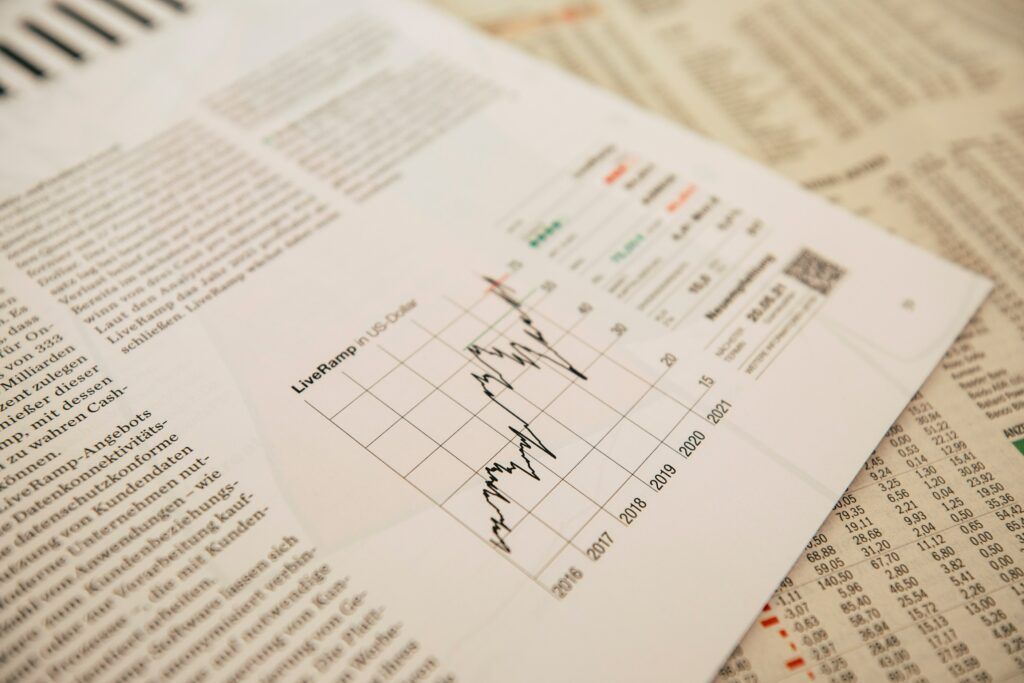What does the term “stock market” mean?
Definition:
Equities exchanges provide a platform for arriving at a trading price that balances supply and demand. A stock exchange is a marketplace for the trading of financial instruments. Stock exchanges make buying and selling easier by facilitating transactions between buyers and sellers. This process is called the stock exchange.
They assist both buyers and sellers in reaching a fair and reasonable agreement on a price. Securities are held by investors either to generate interest or dividend income. However, investors are unable to offload them unless they can also find a buyer for them.

Similarly, individuals with large sums of money in the bank with extra cash on hand may prefer to put that money to work by investing it in various assets.
A significant number of buyers and sellers may be interested in trading a specific security. They assist both buyers and sellers in reaching a fair and reasonable pricing agreement.
Features of financial stock exchanges:
The following list of stock exchange characteristics is based on the information presented above and the definitions provided.
Determination of the Price and Stability:
The stock exchange transactions occur regularly, there is consistency in the trades. This information is provided to investors in the form of published prices. There are rules and regulations at the stock exchanges that help keep prices stable by restricting large price swings. Several factors influence stock market supply and demand, which impacts the price of stocks.
Forming an Organization and Becoming a Member:
Generally, a stock exchange is set up as an association, society, or corporation with the state. The authorized membership cost must be paid by every member. There is a gap in the number of stock exchange members, and new members can only join when there are openings.

Well-organized market:
The rules and regulations of the relevant stock exchange govern all transactions. Securities are purchased and sold on the stock exchange’s floor, which is structured as a market.
Securities that are traded on a public exchange:
Exchanges keep these securities in a central location, although trading is progressively shifting away from physical locations. Companies’ securities cannot be traded on the stock exchanges.
Companies that wish to have their securities traded on a stock exchange floor must meet several requirements. Listed on the respective stock market under the standards provided by the exchange is required before securities can be traded there. Securities are purchased and sold on the stock exchange’s floor, which is structured as a market.
The following sections detail some of the stock exchanges’ most critical economic roles. A stock exchange is a vital part of the capital formation process since it is a central financial intermediary.
Only Members Have The Ability To Exchange Goods:
Members of a stock exchange, or their authorized agents, conduct transactions on behalf of investors on the exchange’s floor. Only a few people can access the stock exchange: Brokers, who are members of the business. They represent the interests of both buyers and sellers of stocks, bonds, and other financial instruments.
Securities’ Marketability:
Securities can be bought and sold quickly on the stock exchange floor, which makes them readily marketable. Companies can raise funds for expansion by selling shares to investors on the stock exchange.

Using Your Savings You Have Left Over:
In a country’s capital market, the stock exchange plays a key role. As a result, economic growth is boosted, and enterprises’ productivity levels increase. When individuals take money out of their savings and invest it in stocks, this helps companies raise money to fund their operations.
Economic Forces:
The market forces cause stock exchange share prices to vary. Whenever the economy and firms exhibit signals of stability, share prices tend to grow or stay stable.
Market security prices are susceptible to changes in the broader socio-economic and political variables that influence them. Investment activity is measured by the volume of securities bought and sold and the resulting rise or decline in the values of those securities.
Capitalism’s Flexibility:
Small investors and their savings in securities have an open and continuous market provided by stock exchanges. As a result, stock exchanges help capital move around and make investments easier.
It takes a lot of money to invest in other companies, whereas stock investments are available to large and small investors. When people go to the stock exchange to invest, they are encouraged to save.
Profit-Sharing and Allocation of Resources:
Individuals, professional stock investors, and all other forms of stock investors are welcome. Dividends and stock price growth are two ways institutional investors make money.
Industries that have the growth potential can allow investors to put their money into their ventures. As a result, the economy’s financial resources are allocated fairly.
Stock market transactions result in money moving from less companies to more profitable ones. Shareholders may suffer capital losses if a company is unprofitable or in financial difficulty. As a result, they can benefit from the profits of successful companies.

Speculation:
Speculators use the stock exchanges to keep the price of their securities in check by buying and selling them. The phrases “speculation” and “investment” are intertwined in the financial world.
Corporate:
To maintain control over the exchange’s activities, each stock exchange came up with its own set of regulations and rules. To protect investors’ interests, public stock markets apply stricter regulations than do privately held companies.
Securities trading and transactions are restricted to members only. Comparing publicly traded and privately held organizations, the former has a more substantial track record of management. Investors’ interests are protected from dishonesty and malpractice since members must adhere closely to the regulations.
Liquidity:
The stock exchanges’ most crucial service is this one. Investors rely on the stock markets for both facilitation and assurance. This is a market in which securities may be promptly bought and sold, giving investors with the liquidity they require to accomplish their objectives. Investors typically desire liquidity.

